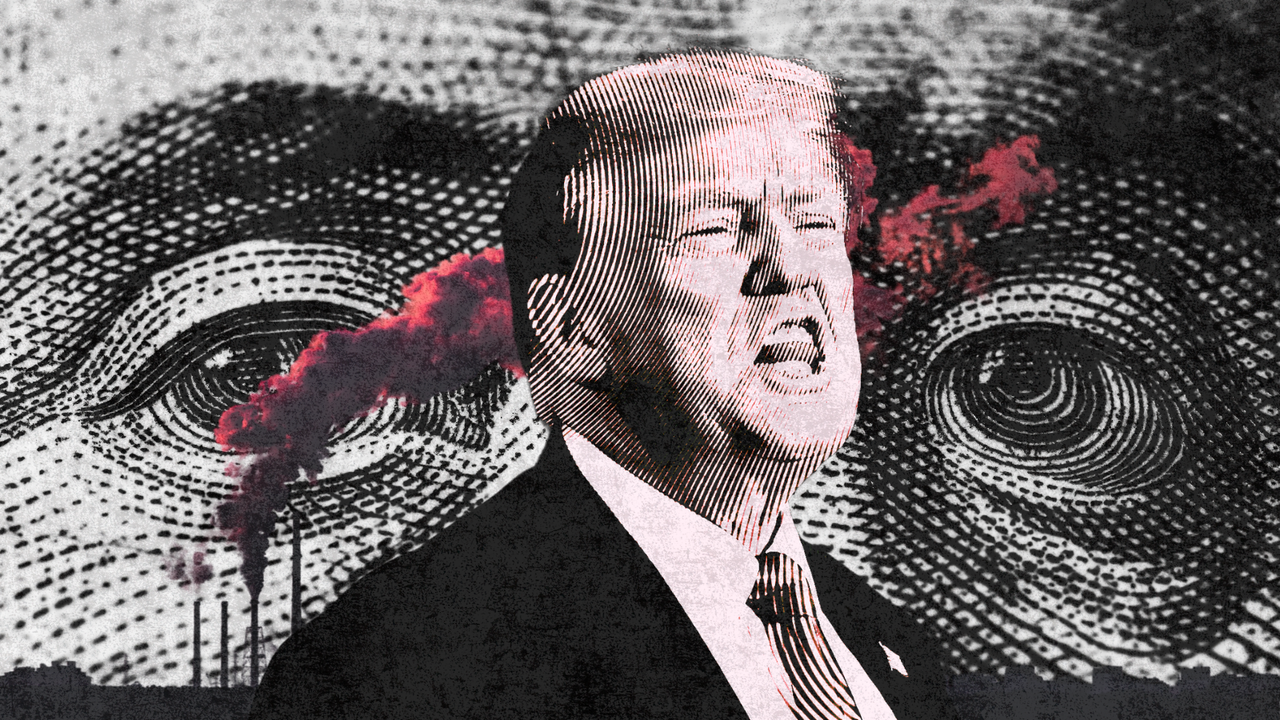
What Trump’s second term means for sustainable finance
As the new president leads the charge against ‘woke capitalism’, will banks move from greenwashing to greenhushing?
Over the past 10 days in California, fatal wildfires have spread through vegetation parched by last year’s prolonged drought, ravaging homes, schools and businesses. In the US, the devastating costs of climate change – in this case estimated to exceed $250bn – could hardly be more stark.
Yet ahead of the second presidential term of Donald Trump, who will be inaugurated on Monday, the country’s top six banks have rowed back on their green commitments by withdrawing from a global net-zero group. Major US asset managers are doing the same.
The move chimes with recent protestations by Trump and senior figures in his Republican party against so-called “woke capitalism” – finance that aims to achieve better environmental, social or governance (ESG) outcomes.
So instead of talking up their green credentials, as has become customary, will banks now endeavour to keep them quiet? Are we moving from greenwashing to “greenhushing”?
Since the start of December last year, Citigroup, Bank of America, Morgan Stanley, Wells Fargo, Goldman Sachs and JP Morgan have all left the Net Zero Banking Alliance (NZBA) – a group launched around the global climate talks in Glasgow in 2021. And this month, the asset management giant BlackRock joined Vanguard in pulling out of a similar initiative.
Prominent Republicans say these groups unfairly disadvantage fossil fuel companies and fly in the face of market competition. In November last year, 11 Republican states sued BlackRock, Vanguard and State Street, arguing that they’d breached laws designed to promote free competition by pressuring coal companies to cut their output and emissions.
But the basis of this surging anti-ESG sentiment among Republicans was brought into question by a 2023 report by policy research group Pleiades, which found that some of those accused of “boycotting” fossil fuel companies are in fact the sector’s largest investors. What’s more, it found that the industry’s anti-ESG lobbying served to undermine a free market agenda.
Fossil fuel boom
During his first term in office, Trump rolled back more than 100 environmental rules and policies. This time around, his election campaign enjoyed the backing of numerous fossil fuel executives and his “drill, baby, drill!” mantra signals a likely fossil energy boom in the US.
His pick for the Environmental Protection Agency is former New York attorney Lee Zeldin, who has pledged to restore the country’s “energy dominance” – understood to mean oil and gas production – by cutting environmental red tape. The new energy secretary will be Chris Wright, a former fracking CEO who has downplayed the threat of climate change.
Trump has also pledged to boost exports of liquified natural gas (LNG), permit fracking on federal lands and lift an embargo on the approval of new high-polluting LNG export terminals on the Gulf Coast.
 The Calcasieu Pass LNG facility in Louisiana
Venture Global
The Calcasieu Pass LNG facility in Louisiana
Venture Global
He has also said he’ll dismantle Joe Biden’s cornerstone Inflation Reduction Act, which included incentives for an alternative energy buildout. The Democrats tried to Trump-proof the policy by including tax credits for a range of energy sources including nuclear and geothermal, but it remains in the new president’s crosshairs.
On the global stage, Trump has again pledged to pull out of the Paris Agreement, claiming its demands are unfair. And he could even withdraw from the treaty it was negotiated under, according to reports.
No commitment, no problem
In the US, much of the momentum towards green finance that was generated in Glasgow four years ago has been derailed by fervent anti-ESG sentiment and higher oil prices. The same seems to be happening in Canada, where big fossil fuel-backing banks are also considering leaving the net-zero alliance.
It does, however, remain open to question whether these initiatives make a huge deal of difference. Ultimately, banks will always aim to deliver value for their shareholders – and grow their investors’ money wherever best.
Whatever they say publicly about green energy (and research suggests that banks in the net-zero alliance didn't look at fossil fuels any differently to those without climate commitments), renewables are now the cheapest form of energy generation, and investments in wind and solar are expected to surpass fossil fuels for the first time this year.
Many of these banks’ green pledges were made or strengthened in response to pressure from shareholders concerned about the financial risks of climate change. And as the climate crisis becomes increasingly acute, so does its financial cost – as the recent disaster in California has shown.
If nothing else, banks are risking their reputations by U-turning on their climate pledges. But for now at least, many of their commitments remain in place. And the banks remain accountable for them.
Reporter: Rob Soutar
Deputy editor: Chrissie Giles
Editor: Franz Wild
Production editor: Alex Hess
TBIJ has a number of funders, a full list of which can be found here. None of our funders have any influence over editorial decisions or output.
-
Area:
-
Subject:







